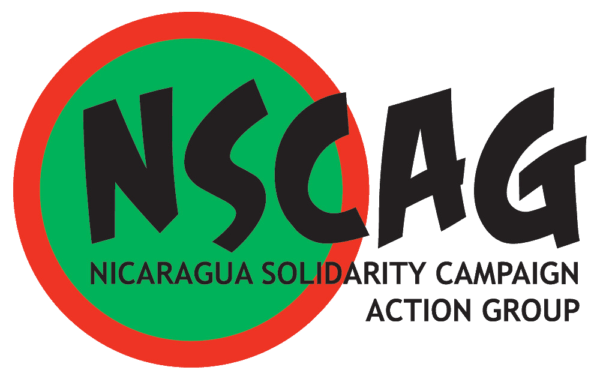Nicaragua Solidarity Campaign Action Group
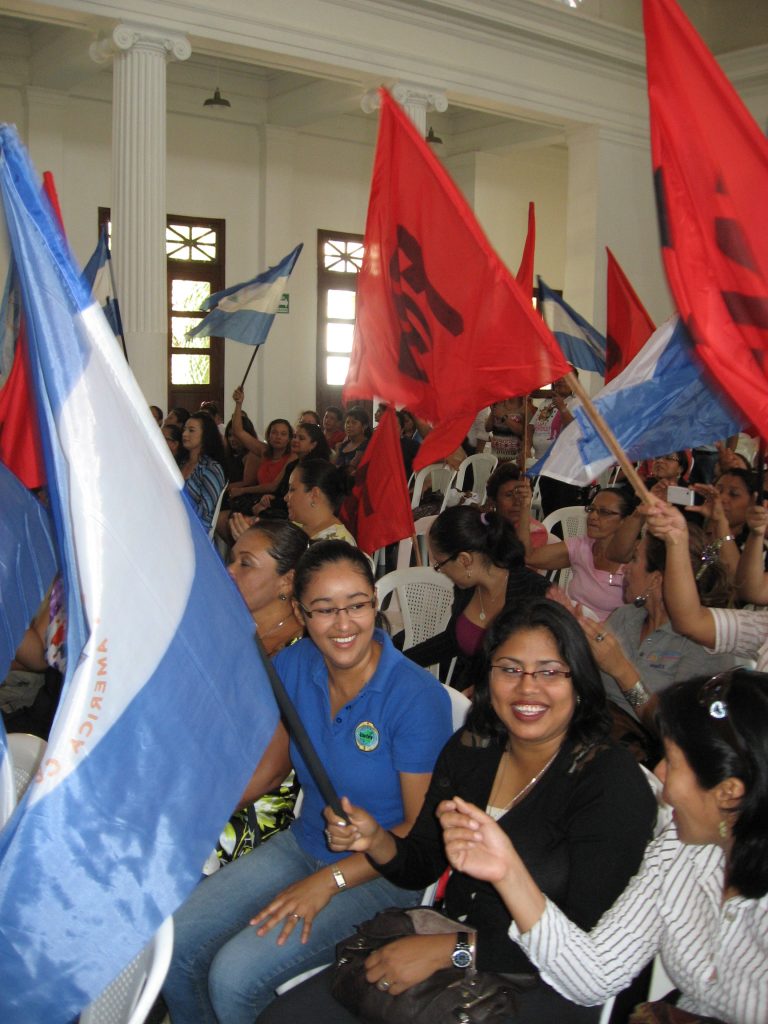
UK/Nicaragua Solidarity
Our Nicaraguan trade union partners
Through more than four decades of profound political change in Nicaragua, the UK and globally, NSCAG and our former sister organisation NSC, have facilitated deep bonds of mutual solidarity between the UK and Nicaragua.
Over the years these links, based on the common interests of UK and Nicaraguan organisations, have focused on interrelated themes of economic, social and environmental justice.
This includes fostering and maintaining links of support and solidarity between UK and Nicaraguan trade unions in order to share knowledge and experience and enhance mutual understanding.
This also includes solidarity with small scale farmers working on climate justice, agroecoloy, gender equality, property rights, community organising and peasant feminism.
From 1990 – 2006 successive US-backed neo-liberal governments implemented a crackdown on trade unions and public sector workers. Health and education were privatised, and two thirds of public sector workers lost their jobs. Union membership plummeted as a result.
Today Nicaragua’s trade unions have seen their rights fully restored. In addition to collective bargaining rights, they play an important role in the social and economic life of the country and are respected and valued for the work they do.
Very often we feel alone in trying to create a better world but the opportunity to meet other people with the same vision and who act on that vision means that we feel strengthened and accompanied.
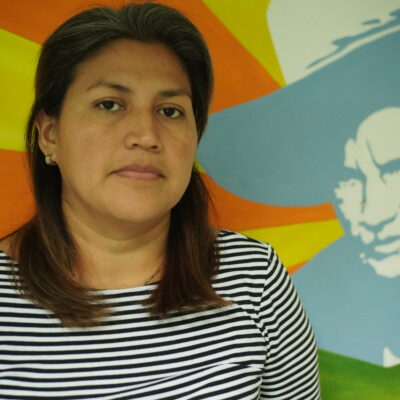
FNT – National Workers Front
The FNT is the main trade union confederation in Nicaragua (equivalent to the British TUC). It was set up on 28 April 1990 to coordinate the work of Sandinista unions in defending the gains made for workers under the revolutionary government of 1979-1990.
The FNT’s membership stands at 800,000 and includes the main trade union organisations we work with – ANDEN, CTCP, UNE, FESITUN, and FETSALUD (see below). Unions affiliated with the FNT hold 80% of trade union membership.
In addition to focusing on workplace issues, the FNT and its members are also concerned with social, environmental, economic, and political issues such as housing, health, and access to education and social security.

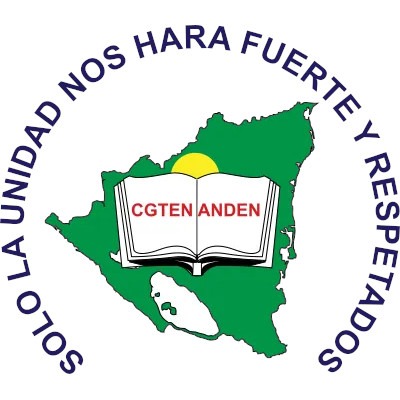
ANDEN: Teachers’ Union
ANDEN is the biggest teaching union, representing over 80% of primary and secondary school teachers.
It has 28,000 members, organised into 24 federations and 178 local branches.
In February 2026, the union celebrated its 47th anniversary.
The main aim of the union is to ensure free, quality public education for all; it strongly believes that education is a right, not a privilege, and in 2023 adopted the motto ‘Education for Peace and Development’.
Since 2007, ANDEN has partnered with the National Education Union and NSCAG in the development of an exchange programme between UK and Nicaraguan teachers of second languages.
CTCP: Confederation of Self-Employed Workers
The youngest member of the FNT, the CTCP was formed in May 2002. Its membership has risen rapidly, and it now has a membership of 85,000 with 52% women and 65% young people between the ages of 16 and 36. CTCP members represent a large percentage of the Nicaraguan workforce, comprising 60 to 65% of the economically active population.
The union includes street sellers who sell goods and services, especially food and drinks. Some are micro-business owners, while others have workshops for mechanics, carpentry and tyre repairs.
The union’s priorities include developing and strengthening the union, fighting for the rights of its members, investing in people and raising their self-esteem, promoting decent work and social cohesion, improving education and training for members (many of whom have no formal education) and improving health and safety.
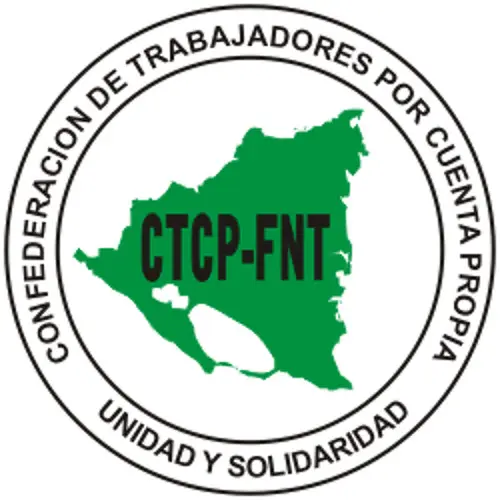
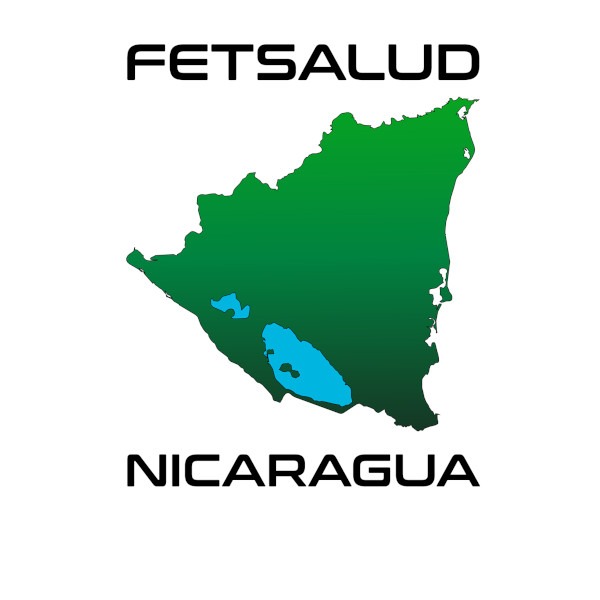
FETSALUD: Health Workers' Union
FETSALUD organises doctors, nurses, administrative staff and auxiliary workers in the health sector. The union was set up in 1974 under the Somoza dictatorship.
During the 1980s, there were 35,000 health workers, but privatisation of health care and savage cuts imposed by neoliberal governments after the 1990 elections meant mass sackings and many health workers lost their jobs.
One of the first acts of President Daniel Ortega following the election of the FSLN (Sandinista National Liberation Front) in 2007 was to reverse the privatisation of health and education.
Today FETSALUD has a membership of 32,322 health workers (85% of the total workforce) including both medical and non-medical staff (cleaners, gardeners, catering staff, administration, security etc.)
FETSALUD prioritises the recruitment and organisation of women and young people and the strengthening of their structures within the union. Seventy per cent of FETSALUD’s members are women.
FESITUN: Federation of University Workers of Nicaragua
FESITUN was established in 2001. It organises non-teaching staff in universities, which includes administrators, gardeners and maintenance staff. It has 4,000 members, 56% of whom are women.
During the 1990s, the union was involved in a huge campaign to demand a 6% salary increase – there were regular marches and demonstrations and many confrontations with the police. Since the election of Daniel Ortega and the FSLN in 2007, the union has seen salaries increase by around 120% for its members. Around six per cent of the national budget is now earmarked for universities.


UNE: Public Sector Union
UNE has its origins in the struggles of the Sandinistas to overthrow the brutal Somoza dictatorship. After the Sandinistas came to power in 1979, the union started organising government ministries representing workers in communications, energy, water and the municipalities.
In 1990, the Sandinistas lost the elections, and a US-backed right-wing coalition came to power. The neo-liberal years lasted until 2007, during which time the public sector was brought to its knees. Over 100,000 state sector workers lost their jobs – 66% of the workforce – including 2,500 union leaders. UNE’s membership fell to 5,000.
Since 2007, UNE has seen its rights restored. It now has 45,000 members and organises in central and local government and the electricity and water industries. UNE is keen to recruit and train more women and young members. 45% of UNE members are women and it has active Women’s and Youth Committees.
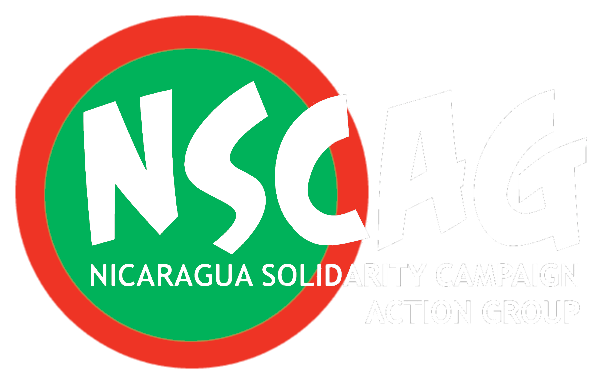
NSCAG is a limited company registered in England and Wales. Company registration number: 04568098.
- admin@nscag.org.uk
- NSCAG, Space 4, 113-115 Fonthill Road, London N4 3HH
- United Kingdom
- Privacy Policy
Join our Mailing List
© 2024 Nicaragua Solidarity Campaign Action Group. All rights reserved
